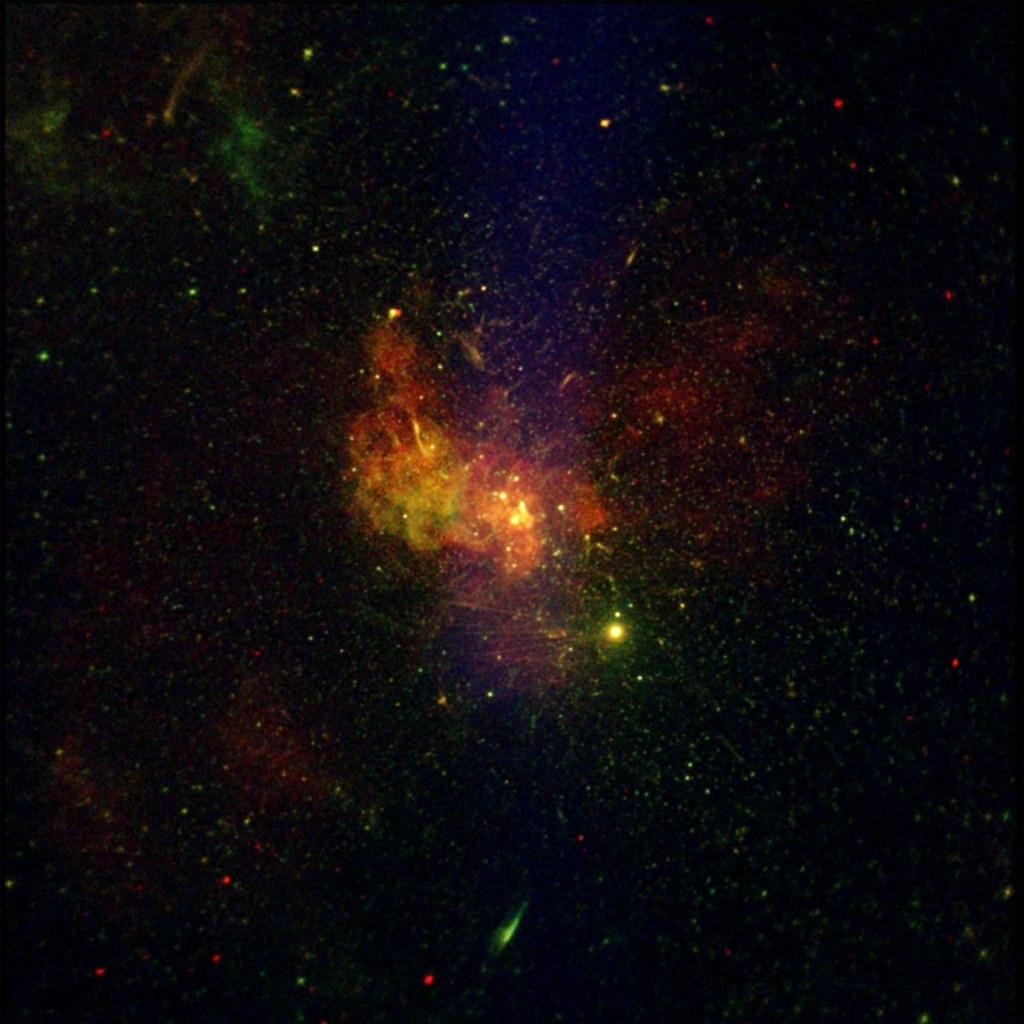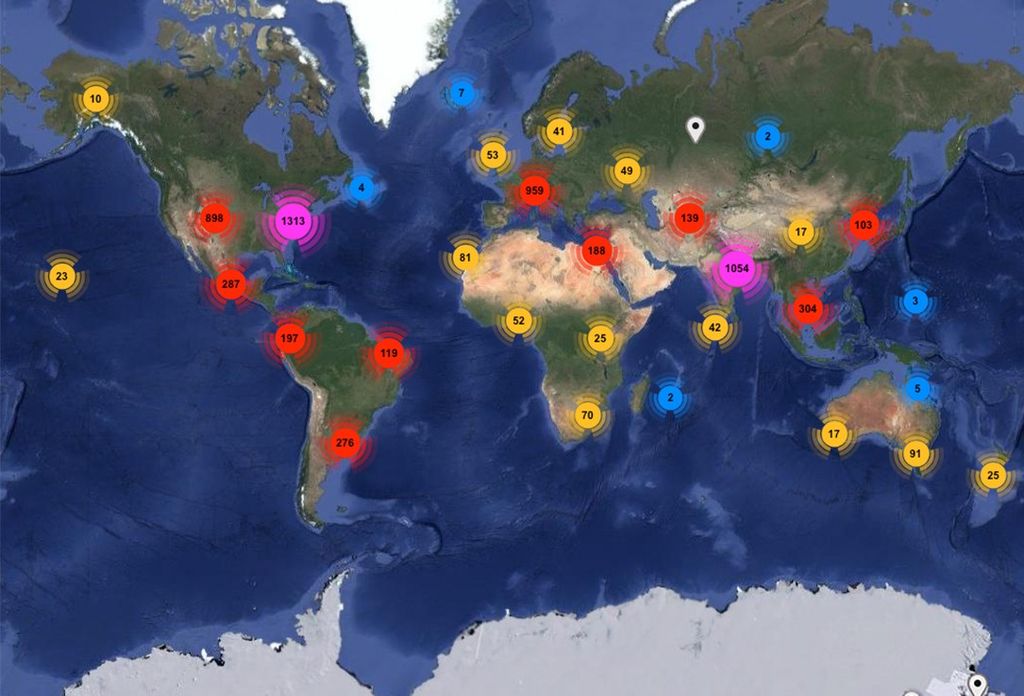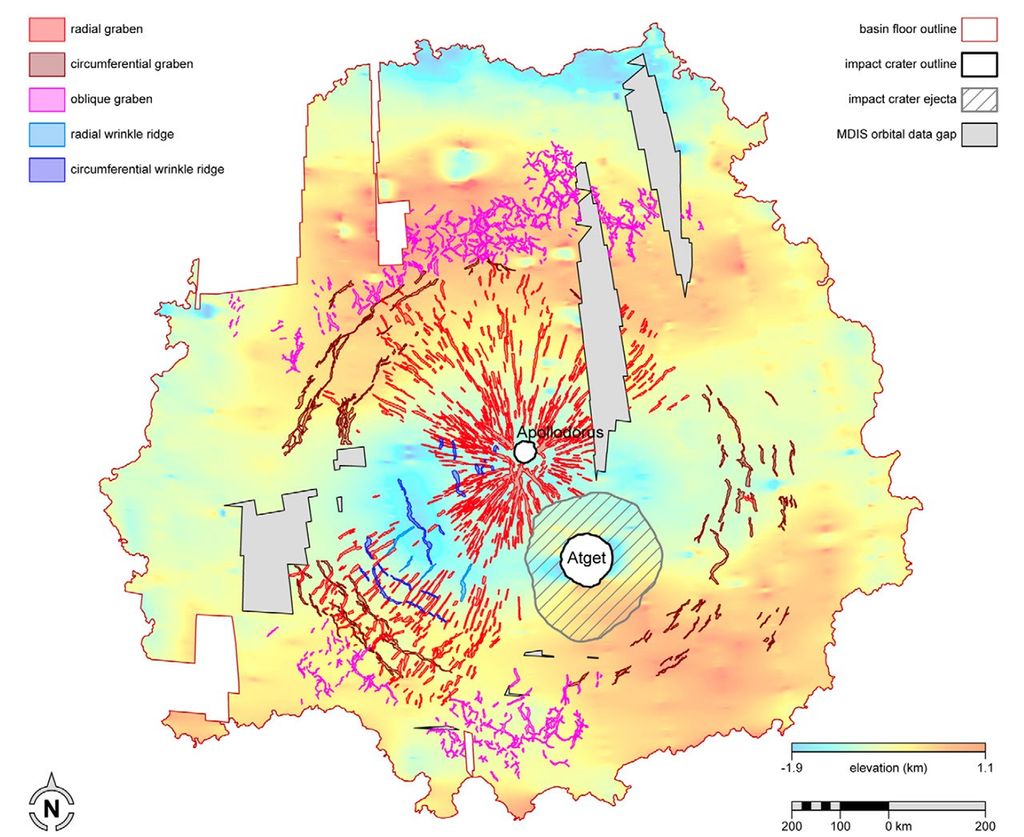1900.9A
Effective: July 14, 2004
Expiration Date: July 21, 2009
COMPLIANCE IS MANDATORY
This Document Is Uncontrolled When Printed.
Check the NASA Online Directives Information System (NODIS) Library
to verify that this is the correct version before use:
http://nodis3.gsfc.nasa.gov
Ethics Program Management
Responsible Office: G / Office of the General Counsel
Table of Contents
Preface
P.1 Purpose
P.2 Applicability
P.3 Authority
P.4 References
P.5 Cancellation
Chapter 1. Responsibility
1.1 General Counsel
1.2 Alternate Designated Agency Ethics Official
1.3 Center Chief Counsel
1.4 Director, Headquarters Human Resources Management Division
1.5 Center Human Resources Officers
1.6 Advisory Committee Executive Secretaries
1.7 Agency Designee
1.8 Ethics Officials
Chapter 2. Levels of Headquarters Involvement
2.1 General
2.2 General Guidance
2.3 Information Copy
2.4 Prior Coordination
2.5 Concurrence
2.6 Headquarters Action
Chapter 3. Advice and Counseling
3.1 Written Opinions
3.2 Post-employment Opinions and Seeking Employment
3.3 Outside Activity Requests
3.4 Statutory Waivers
3.5 Impartiality Determinations
3.6 Widely Attended Gathering Determinations
3.7 Other Advice and Counseling
3.8 Sensitive Matters
3.9 Criminal Matters
3.10 Form of Counseling
Chapter 4. Financial Disclosure Reports
4.1 Positions Subject to Financial Disclosure
4.2 Identification and Notification of Filers
4.3 Determination of Calendar Year
4.4 Timeframe for Filing
4.5 Extensions and Late Fees
4.6 Collection and Review
4.7 Retention of Completed Reports
4.8 Guidance on Financial Disclosure Requirements for Special Government Employees Serving on NASA Advisory Committees
Chapter 5. Employees on Detail
5.1 Role of Ethics Officials
Chapter 6. Standing Ethics Committee
6.1 Purpose and Duration
6.2 Structure
6.3 Meetings
6.4 Relationship to DAEO
6.5 Functions
6.6 Recommendations
Chapter 7. Ethics Training
7.1 Training for Ethics Officials and Ethics Committee Members
7.2 Annual Ethics Training
7.3 Training Library
7.4 Web-based Training
Chapter 8. Program Reviews
8.1 General
8.2 Types of Program Reviews
P.1 Purpose
This NPR establishes NASA requirements and procedures to implement the Agency Ethics Program, as set forth in NPD 1900.9, Ethics Program Management, and to ensure that NASA complies with Federal and Agency ethics laws, regulations, Executive orders, and directives. To accomplish this consistently among the Centers, the NPR specifically addresses the degree of Headquarters oversight of the Ethics Program and the processes for handling ethics matters consistently, conducting program reviews, and continuing policy development.
P.2 Applicability
This NPR is applicable to NASA Headquarters and NASA Centers, including Component Facilities.
P.3 Authority
a. Section 203(c) of the National Aeronautics and Space Act of 1958, 42 U.S.C. § 2473(c), as amended.
b. Ethics in Government Act of 1978, 5 U.S.C. App. §§ 101-111, 401-408, 501-505, as amended.
c. Office of Government Ethics and Executive Agency Ethics Program Responsibilities, 5 Code of Federal Regulations (CFR) part 2638.
P.4 References
a. Suitability, Security, and Conduct, 5 U.S.C. §§ 7301 et seq.
b. Bribery, Graft, and Conflicts of Interest, 18 U.S.C. §§ 201-209, 216.
c. Principles of Ethical Conduct for Government Officers and Employees, Executive Order 12674 of April 12, 1989, as amended by Executive Order 12731 of October 17, 1990.
d. Government Ethics Regulations and the Supplemental Standards of Ethical Conduct for Employees of the National Aeronautics and Space Administration, 5 CFR parts 2634-38, 2640, 2641, and 6901.
e. National Aeronautics and Space Administration Regulations, Standards of Conduct, 14 CFR part 1207.
f. NPD 1900.9, Ethics Program Management.
g. NPD 1440.6G, NASA Records Management.
h. NPR 1441.1D, NASA Records Retention Schedules.
P.5 Cancellation
NPR 1900.3, Financial Disclosure Reports, dated February 25, 1999./s/ John G. Mannix
Acting General Counsel
DISTRIBUTION:
NODIS
Chapter 1: Responsibility
1.1 General Counsel
1.1.1 Program Responsibility
The General Counsel of NASA is the Designated Agency Ethics Official (DAEO) and is delegated the authority to coordinate and manage NASA’s Ethics Program as set forth in 5 CFR § 2638.203. The DAEO has primary responsibility for the administration, coordination, and management of the Agency’s Ethics Program. Any delegation or re-assignment of the DAEO’s duties does not release the DAEO from responsibility. The DAEO’s oversight responsibilities include ensuring that NASA’s Ethics Program has adequate resources, is effective, and is administered in accordance with applicable laws and regulations. The DAEO makes delegations of authority and ensures that prompt and effective action is taken to remedy potential or actual conflicts of interests. The DAEO’s responsibilities include, but are not limited to, the following activities:
a. Providing final written or oral opinions concerning the application of the conflict of interest laws or the Standards of Ethical Conduct for Employees of the Executive Branch, including giving advice directly to Government employees;
b. Serving as an “Agency Designee” for purposes of 5 CFR part 2635;
c. Maintaining, distributing, collecting, reviewing, and certifying financial disclosure reports, in accordance with relevant laws and regulations;
d. Receiving, reviewing, and granting requests for disclosure of Public Financial Disclosure Reports, in accordance with relevant laws and regulations;
e. Determining Agency policies, e.g., determining (with approval by the Office of Government Ethics (OGE)) the need to issue, and content of, supplemental standards of ethical conduct regulations, and recommending for designation departmental or Agency components for purposes of 18 U.S.C. § 207;
f. Referring a criminal or regulatory matter to the NASA Inspector General for investigation;
g. Assisting the NASA Inspector General in referring a criminal matter to the Department of Justice (DOJ);
h. When matters have been referred to DOJ (or State or local authorities) for potential prosecution, referring matters to and advising appropriate management officials to assist them in taking appropriate administrative action whether the matter is ultimately accepted for prosecution or declined. Such action need not await final outcome of the criminal matter if NASA officials have sufficient factual basis for initiating an action, provided that such actions are coordinated with prosecutors to ensure that the potential criminal case is not prejudiced;
i. Referring matters to and advising appropriate management officials to assist them in taking administrative action to the fullest extent with regard to regulatory violations;
j. Exercising delegated authority to grant individual waivers under 18 U.S.C. §§ 208(b)(1) and (b)(3);
k. Appointing Deputy Ethics Officials;
l. Developing and conducting training; and
m. Ensuring proper maintenance and disposition of Ethics Program records in accordance with NPR 1441.1D, NASA Records Retention Schedules.
1.1.2 Financial Disclosure Reports
The General Counsel shall review any complaint by a NASA Headquarters filer that his or her position has been improperly determined to be one that requires the submission of an OGE Form 450. A decision by the General Counsel shall be final.
1.2 Alternate Designated Agency Ethics Official (ADAEO)
1.2.1 Program Responsibility
The ADAEO manages the Ethics Program on behalf of the DAEO. The ADAEO is responsible to the DAEO for all Ethics Program activities Agencywide. Any further delegation or reassignment of these duties does not release the ADAEO from responsibility.
1.2.2 Financial Disclosure Reports
The ADAEO will provide a recommendation to the Director, Headquarters Human Resources Management Division, on the merits of exempting a position or class of positions at NASA Headquarters from the confidential reporting requirement.
1.3 Center Chief Counsel
1.3.1 Program Responsibility
Each Center Chief Counsel, as a Deputy Ethics Official, is responsible to the DAEO for all Ethics Program activities at the Center. Any further delegation or reassignment of these duties does not release the Chief Counsel from responsibility.
1.3.2 Financial Disclosure Reports
a. The Chief Counsel of a NASA Center shall review any complaint by a NASA Center filer that his or her position has been improperly determined to be one that requires the submission of an OGE Form 450. A decision by the Chief Counsel shall be final.
b. The Chief Counsel will provide a recommendation to Center Human Resources Officers on the merits of exempting a position or class of positions at a NASA Center or Component Facility from the confidential reporting requirement.
c. If circumstances require it, a Chief Counsel may perform duties that are the responsibility of other offices, as set forth in NPD 1900.9D.
1.4 Director, Headquarters Human Resources Management Division
The Director, Headquarters Human Resources Management Division, will determine whether to exempt a position or class of positions at Headquarters from the confidential reporting requirement, subject to the standards set forth in chapter 4.
1.5 Center Human Resources Officers
Center Human Resources Officers will determine whether to exempt a position or class of positions at a NASA Center or Component Facility from the confidential reporting requirement, subject to the standards set forth in chapter 4. In this NPR and the accompanying NPD, Center Human Resources Officers are also designated as “Directors” when collectively referring to the Director of the Headquarters Human Resources Management Division and Center Human Resources Officers.
1.6 Advisory Committee Executive Secretaries
The Executive Secretaries of NASA Advisory Committees are responsible for reviewing the financial disclosure reports for Special Government Employees (SGEs) assigned to their committees.
1.7 Agency Designee
a. An “Agency Designee” is defined as any Agency employee who has been delegated authority herein to make determinations, give approvals, or take action required or permitted under the Standards of Conduct.
b. As used in 5 CFR part 2635, the term “Agency Designee” refers to the following:
(1) For employees at NASA Headquarters, or for matters affecting employees Agencywide, the Associate Deputy Administrator for Institutions and Asset Management, the Designated Agency Ethics Official, the Alternate Designated Agency Ethics Official, or the Chief of Staff; and
(2) For Center employees, the Center Director, who may delegate specific responsibilities of the Agency Designee to the Center Chief Counsel or to another official who reports directly to the Center Director.
1.8 Ethics Officials
As used throughout this NPR, the term “ethics officials” refers to Deputy Ethics Officials and their designees.
Chapter 2: Level of Headquarters Involvement
2.1 General
Each type of ethics action will trigger a corresponding level of involvement by Headquarters. Unless specifically reserved to the DAEO or ADAEO, Headquarters means the ethics officials within the Office of the General Counsel. The continuum of Headquarters involvement with Center actions ranges from general guidance to direct Headquarters action.
2.2 General Guidance
This is the lowest level of Headquarters involvement in Center ethics actions. This does not mean that Headquarters must provide guidance on each and every action, but rather that Headquarters may provide guidance when necessary or helpful to the resolution of that type of action. Center ethics officials are expected to follow applicable Headquarters guidance, but are not normally required to involve Headquarters in specific matters. Centers should consult with Headquarters on specific cases when the sensitivity of the matter warrants it or when Headquarters’ expertise or perspective is needed.
2.3 Information Copy
For types of actions identified as “information copy,” Centers will be required to send a copy of written opinions and determinations to Headquarters after they are issued.
2.4 Prior Coordination
These types of actions require notice to Headquarters sufficiently in advance to allow meaningful input prior to the Center taking any final action on the matter. Depending on the circumstances, verbal coordination may be sufficient.
2.5 Concurrence
These types of actions require the prior written concurrence of Headquarters.
2.6 Headquarters Action
For these types of actions, Headquarters has the lead responsibility and signature authority for the action.
Chapter 3: Advice and Counseling
3.1 Written Opinions
Any written interpretation of a criminal ethics statute must be based on a written statement of facts provided to the attorney by the individual requesting the opinion. While this practice is not required for the written interpretation of non-criminal provisions, it should be followed to the maximum extent practicable in those cases. All written opinions interpreting the statutes at Chapter 11 of Title 18 shall be prospective in nature, and no written opinion may be issued which includes a determination of whether such statutes have been violated by an employee’s prior conduct. For standards governing referral of prior conduct to the Office of Inspector General, see NPD 9800.1A, NASA Office of Inspector General Programs. Supplemental information resulting from interviews with witnesses other than the individual requesting the opinion need not be provided in writing. Any relevant facts gathered from such witnesses, however, should be documented by the ethics official preparing the opinion.
3.2 Post-employment Opinions and Seeking Employment
3.2.1 SES Employees
For SES employees, Headquarters concurrence is required on post-employment opinions. Opinions for SES employees who have been out of the Government for more than 1 year are subject to information copy only.
3.2.2 Non-SES Employees
For non-SES employees, an information copy of post-employment opinions shall be sent to Headquarters.
3.2.3 Nature and Timing of Headquarters Communication
Headquarters shall be provided an advance copy 1 week prior to execution, where practicable. In the case of post-employment opinions only, concurrence may be verbal where required in the interest of time.
3.2.4 Format
Requests for post-employment opinions shall be in writing. All opinions involving a discrete set of facts must be in writing.
3.2.5 Exemption for scientific and technological communications
a. Whenever a former Government employee, who is subject to the constraints of post-employment conflict of interest statute 18 U.S.C. § 207, wishes to communicate with NASA under the exemption in section 207(j)(5) to make a communication solely for the purpose of furnishing scientific or technological information, the former employee shall provide the following information to the NASA employee contacted:
(1) That he or she is a former Government employee subject to the post employment restrictions of 18 U.S.C. § 207 (a), (c), or (d)–specify which;
(2) The name and description of the NASA projects or programs worked on and the level of involvement in each; and
(3) That the communication is solely for the purpose of furnishing scientific or technological information.
b. If the former government employee has questions as to whether the communication comes within the scientific and technological exemption, he or she should contact the DAEO or the legal office at the NASA Center where that person was previously employed.
3.2.6 Seeking Employment
In the event that an employee is seeking employment outside of NASA and must recuse him or herself from involvement in matters affecting the interests of an outside entity, the recusal process shall be coordinated, at a minimum, with the employee’s supervisor and the appropriate Headquarters or Center legal counsel. All recusals shall be in writing.
3.3 Outside Activity Requests
Approval of outside activity requests for Center Directors, Deputy Center Directors, and Chief Counsels is a Headquarters action. For other “Key Officials,” as defined in the Supplemental Standards of Ethical Conduct for Employees of the National Aeronautics and Space Administration, 5 CFR § 6901, an information copy of their approved requests shall be sent to Headquarters. Other outside employment requests will be subject to general guidance.
3.4 Statutory Waivers
3.4.1 Prohibition
Employees are prohibited by criminal statute, 18 U.S.C. § 208(a), from participating personally and substantially in an official capacity in any particular matter in which, to their knowledge, they, or any person whose interests are imputed to them under the statute, have a financial interest, if the particular matter will have a direct and predictable effect on that interest.
3.4.2 Specific Waiver Available
A NASA employee may request a waiver of this prohibition. NASA may grant a specific waiver of the prohibition only if the Agency determines that the employee’s financial interest is not so substantial as to be deemed likely to affect the integrity of the employee’s services. The waiver must be obtained before the employee participates in the matter.
3.4.3 Procedures for Specific Waiver
a. Format
The employee’s request for a waiver must be in writing. The request must provide sufficient information for the reviewing official to address the factors set forth in 5 CFR § 2640.301, including a full description of the particular matter involved, the relevant duties of the employee, and the exact nature and amount of the disqualifying financial interest.
b. Process
(1) Statutory waivers (e.g., Section 208 waivers) are Headquarters actions. All waivers require the approval of the Administrator.
(2) Headquarters employees must submit their requests to the Official-in-Charge of the Headquarters office in which they are employed and to the General Counsel for concurrence. The Official-in-Charge will then submit the request to the Administrator with recommendations on the proposed waiver.
(3) Center employees must submit their requests to their Center Chief Counsel for concurrence and then to the Director of the Center where they are employed. The Center Director will provide the request, with recommendations, to the appropriate Enterprise Assistant Administrator and to the General Counsel for review and submission to the Administrator. Headquarters may authorize a Center ethics official to consult directly with OGE on any specific waiver request, or to deem such consultation impracticable, as set forth in 5 CFR § 2640.303.
c. Copies
Copies of approved waivers must be forwarded to the Assistant Administrator for Human Resources, the General Counsel, and OGE.
3.4.4 Cross-References
For regulations governing waivers and exemptions under 18 U.S.C. § 208, see 5 CFR part 2640.
3.5 Impartiality Determinations
Prior coordination with Headquarters is required for Agency Designee determinations under subpart E if the determination relates to the Center Director, Deputy Center Director, or Chief Counsel. Other subpart E determinations are subject to general guidance.
3.6 Widely Attended Gathering (WAG) Determinations
3.6.1 Authority to Issue a WAG
Any event may be a Headquarters action. A Center has the authority to approve WAG determinations, subject to general guidance, where the event is in the geographic region of the Center, and the NASA invitees are predominantly employees of that Center, even if some invitees are from other Centers or Headquarters. Prior coordination with Headquarters is required if high-level officials from Headquarters have been invited and may actually attend the event.
Information copies of Center WAG determinations must be provided to Headquarters and to other Centers if personnel from those locations are being, or may be, invited to the event.
3.6.2 Timing of Determinations
Determinations may not be issued after the fact. Although multiple events may be addressed by a single document, each separate event, including each iteration of recurring events, must have a particularized analysis sufficient to support the determination.
3.7 Other Advice and Counseling
For types of advice and counseling that are not otherwise addressed, the appropriate level of Headquarters involvement is general guidance. However, in any case in which an information copy is submitted to OGE, an information copy should be sent to Headquarters also.
3.8 Sensitive Matters
Even when Headquarters involvement in a particular matter is not required, Center Chief Counsel’s Offices may consult with the General Counsel’s Office on any matter in which guidance is desirable or of which they believe Headquarters should be made aware. Chief Counsel’s Offices should undertake to consult with Headquarters any time the sensitivity of the matter warrants it, considering the following factors:
a. The position(s) of the individual(s) involved.
b. The amount of money or value of assets involved.
c. The likelihood of similar issues arising in the future, and the desirability of setting a precedent or improving consistency in handling similar matters.
d. The potential for criminal investigation arising out of the fact pattern.
e. The level of visibility of the issue outside the Agency.
f. Statutory or regulatory requirements that affect the issue. In particular, when an agency other than NASA is required to be consulted or notified regarding an issue, Headquarters should also be notified prior to notice being provided to the outside agency.
3.9 Criminal Matters
Where a matter has been referred to the appropriate authorities for potential criminal investigation, Headquarters should be notified.
3.10 Form of Counseling
Ethics officials should tailor ethics advice to the needs and requirements of each situation. Factors to consider should include the following:
a. The preferences of the employee,
b. The importance of the substantive advice,
c. The need to formally document background factual information,
d. The need to formally document any advice to help protect the Agency and employee with respect to the employee’s needs, the preferences of potential outside entities, and against any potential criminal investigation, and
e. The need to report information to the Office of Government Ethics, the need to document Agency precedent and keep accurate statistics for Agency use, the need to report information to the Agency ethics team.
While these factors are not exclusive, ethics officials should consider each in reaching a determination on whether to provide written or oral advice, and shall be able to articulate good reasons for the decision made. To the extent practicable, ethics officials should keep some record of oral advice given for all but the most general and/or informal requests.
Chapter 4: Financial Disclosure Reports
4.1 Positions Subject to Financial Disclosure
4.1.1 Background
Financial Disclosure Reports are part of a disclosure process intended to help employees identify and avoid real and potential conflicts between their financial interests and their governmental duties. There are two different Reports: SF-278, Public Financial Disclosure Report, and OGE Form 450, Confidential Financial Disclosure Report.
4.1.2 Positions Subject to Filing of Executive Branch Public Financial Disclosure Reports
The following individuals, holding a position described in this subchapter, shall be subject to the filing of SF-278s, pursuant to NPD 1900.9:
a. Presidential nominees to positions requiring the advice and consent of the Senate.
b. Officers and employees, including SGEs, whose positions are classified above GS-15 of the General Schedule, or whose rate of basic pay under other pay schedules is fixed at a rate equal to or greater than 120 percent of the minimum rate of basic pay for GS-15 (this includes members of the Senior Executive Service), military personnel serving in pay grades O-7 or above, and employees in any other position determined by the Director of OGE to be of equal classification.
c. Administrative Law Judges.
d. Employees of the excepted service in positions that are of a confidential or policymaking character, unless the Director of the OGE has excluded their positions.
e. The Designated Agency Ethics Official.
f. Intergovernmental Personnel Act employees paid at or above the SES level.
4.1.3 Positions Subject to Filing of Executive Branch Confidential Financial Disclosure Reports
The following individuals, holding a position described in this subchapter, shall be subject to the filing of an OGE Form 450, pursuant to NPD 1900.9:
a. Filing Based on Position
An employee holding a position described below must file an OGE Form 450:
(1) Employees classified at the GS-15 level and below under 5 U.S.C. § 5332, or at comparable pay levels under other authority, regardless of grade, and military personnel serving in pay grades below O-7, whose duties and responsibilities require that the employee participates personally and substantially through decision or the exercise of significant judgment in making a Government decision or taking Government action regarding the following:
(i) Contracting or procuring, including the evaluation or selection of contractors; the negotiation, approval, or award of contracts; the oversight of activities performed by contractors, including administrating, monitoring, auditing, and inspecting of contractors and contract activities; and the initiation or approval of requests to procure supplies, equipment, or services, other than those common items from NASA or General Services Administration sources.
(ii) Administering or monitoring grants or subsidies or agreements, including Space Act Agreements, and including those with educational institutions and other non-Federal organizations.
(iii) Regulating or auditing any non-Federal entity.
(iv) Using or disposing of excess property.
(v) Establishing or enforcing safety standards and procedures.
(2) Employees classified at the GS-15 level under 5 U.S.C. 5332, or at comparable pay levels under other authority and below, and who are identified at Headquarters by the Director, Headquarters Human Resources Management Division, or by the Human Resources Officer at a NASA Center, as holding positions requiring the incumbent thereof to exercise judgment in making Government decisions or taking actions in which such decisions or actions may have a direct and substantial economic impact on the interest of any non-Federal entity; or whose positions are otherwise identified as requiring the employee to file a report to avoid a real or apparent conflict of interest, and to carry out the purposes behind any statute, Executive order, rule, or regulation applicable to or administered by that employee (e.g., employees whose duties involve investigating violations of criminal or civil law).
(3) All SGEs.
(4) Intergovernmental Personnel Act Employees who are performing duties that, if performed by a civil service employee, would require completing an OGE Form 450.
b. Filing Based on Assignment
All employees, regardless of grade, serving as members, evaluators, or advisers to the following boards or committees must file an OGE Form 450:
(1) Source Evaluation Boards or Committees.
(2) Inventions and Contributions Boards.
(3) Contract Adjustment Board.
(4) Board of Contract Appeals.
(5) Site Selection Boards.
(6) Performance Evaluation Boards or Committees administering the award fee of a contract.
c. Exclusions
The employees described in subsections a. and b. above may be excluded from filing OGE Form 450s, under the following circumstances:
(1) An employee required to file a SF-278 may elect to file a current copy of their SF-278 in lieu of the OGE Form 450 required under this chapter.
(2) An employee, or class of employees, may be exempted from the requirement to file an OGE Form 450 when the Director, Headquarters Human Resources Management Division, or the Human Resources Officer at a NASA Center, determines that the employee’s duties are of such a nature as to make remote the possibility that the incumbent will be involved in a real or apparent conflict of interest, or the duties of the position involve such a low level of responsibility that the submission of an OGE Form 450 is unnecessary because of (1) the substantial degree of supervision and review over the position, or (2) the inconsequential effect of any potential conflict on the integrity of the Government. Supervisors shall forward exemption requests from, or on behalf of, employees to the Headquarters Human Resources Management Division through the Associate General Counsel (General) and to NASA Center Human Resources Officers through the Center Chief Counsel. Reviewing counsel will make recommendations based on the merits of exemption requests.
(3) Reviewing officials may make a determination to allow the use of OGE Optional Form 450-A for annual OGE Form 450 filers. If allowed, filers must file a new OGE Form 450 no less often than once every 4 years. If a 4-year cycle is used, new OGE Form 450s must be collected in every year divisible by 4 (e.g., 2000, 2004, 2008).
4.2 Identification and Notification of Filers
4.2.1 Public Financial Disclosure
a. NASA Human Resources Directors will identify employees required to file a SF-278, based on supervisory determinations. The Directors will maintain and update the list of employees identified as filers and shall manage the list in accordance with NPR 1441.1, NASA Records Retention Schedules, to ensure their proper maintenance, safeguarding, and disposition.
b. NASA Human Resources Directors will notify filers of the annual filing deadline by March 15 of each year. The Directors shall send a reminder notice to all filers by April 15.
c. With regard to new entrants, Human Resources Directors will identify employees required to file SF-278s. The Directors will notify and distribute forms to those new entrants so identified as soon as possible in the appointment process and in plenty of time to allow the new filer to meet the 30-day filing requirement.
d. Human Resources Directors must identify employees that are terminating their tenure in a position requiring an SF-278. The Directors must also notify and distribute the forms to terminating employees in plenty of time for the filer to meet the 30-day filing requirement. In the event that the form is not timely filed, Human Resources Directors must notify the terminating employee that the form is late and notify the employee that a late fee will be assessed.
4.2.2 Confidential Financial Disclosure
a. NASA Human Resources Directors will identify employees required to file an OGE Form 450, based on supervisory determinations. The Directors will maintain and update the list of employees identified as filers and shall manage the list in accordance with NPR 1441.1, NASA Records Retention Schedules, to ensure their proper maintenance, safeguarding, and disposition.
b. NASA Human Resources Directors will notify filers of the annual filing deadline by August 31 of each year. The Directors shall send a reminder notice to all filers by September 30.
c. With regard to new entrants, Human Resources Directors will work with the new entrants’ supervisors to identify employees required to file OGE Form 450s. The Directors will notify and distribute forms to new entrants required to make a confidential filing as soon as possible in the appointment process and in plenty of time to allow the filer to meet the 30-day filing requirement.
4.3 Determination of Calendar Year
a. For SF-278s, the reporting period varies depending on the SF-278 Schedule. Schedule A should cover the prior calendar year (CY) and the current CY up to the date of filing; Schedule A, block B, should include the value of assets as of any date within 31 days of filing; Schedule C, Part I should cover the prior CY and the current CY up to any date within 31 days prior to the date of filing; Schedule C, Part II is as of the date of filing; and Schedule D covers the prior two CYs and the current CY up to the date of filing.
b. For OGE Form 450s, the report should cover the 12-month period from October 1 of the prior year through September 30, or any portion of that time period not covered by a previous Public or Confidential report.
4.4 Timeframe for Filing
4.4.1 Public Financial Disclosure
a. Employees responsible for filing annual SF-278s must file their reports for the previous calendar year with the Agency by May 15.
b. New entrants must file within 30 days of assuming a new position that requires Public Financial Disclosure reporting. No report is required if the employee 1) left a position requiring filing of an SF-278 within 30 days prior to assuming the new position or 2) already filled out a report as a nominee.
c. Nominees must file between nomination and within five days after transmission of the nomination to the Senate.
d. If a new entrant or nominee is not expected to work in excess of 60 days in a calendar year as determined by the ADAEO, the employee is not required to file an SF-278. In that case, however, SGEs must still file an OGE Form 450. If the employee eventually does work in excess of 60 days, the employee must file an SF-278 within 15 days after the 60th day of duty and will have to file a termination report after leaving the position.
e. Termination reports must be filed within 30 days of leaving a covered position, unless the filer is going to another covered position within the 30 days.
4.4.2 Confidential Financial Disclosure
a. If an employee performs a job requiring an OGE Form 450 for more than 60 days during the reporting period, the employee must file an OGE Form 450 as an incumbent (i.e., an annual filer). Employees responsible for filing OGE Form 450s must file their reports for the previous fiscal year with the Agency by October 31.
b. New entrants must file within 30 days of assuming a position that requires filing of an OGE Form 450. No report is required if the employee 1) left a position requiring filing of an SF-278 or OGE Form 450 within 30 days prior to assuming the new position and had satisfied the reporting requirements of that job or 2) already filled out a report in connection with appointment to the position.
c. If employees start a covered position between August 2 and September 30, they do not need to file an annual report, because they must have worked over 60 days in the preceding period. Instead, a new entrant report must be collected.
d. With the exception of Special Government Employees, if an employee is not expected to work in excess of 60 days in a calendar year, the employee is not required to file an OGE Form 450. If the employee, however, does work in excess of 60 days, the employee must file an OGE Form 450 within 15 days after the 60th day of duty.
4.5 Extensions and Late Fees
4.5.1 Public Financial Disclosure Reports
a. Form reviewers may grant an extension of 45 days in which to file an SF-278. The reviewers may also grant an additional 45-day extension.
b. If a filer has not turned in their SF-278 within 30 days of the due date or the latest extension date granted by an Agency reviewer, the filer is subject to a $200 late filing fee.
c. Upon written request from a late filer, the DAEO may waive the late filing fee following a determination of extraordinary circumstances.
4.5.2 Confidential Financial Disclosure Reports
a. Reviewing officials may, upon a showing of good cause, grant one or more extensions in which to file an OGE Form 450, not to exceed 90 days total.
b. Administrative remedies are available for late filing of OGE Form 450.
4.6 Collection and Review
a. The Senior Advisor for Executive Resources collects SF-278s for NASA Headquarters employees and all Center Directors, Deputy Directors, and Chief Counsels. The Office of the General Counsel reviews these reports.
b. Center Human Resources Officers collect SF-278s for all other Center employees. Each Office of Chief Counsel reviews and then forwards the Reports to the Senior Advisor for Executive Resources for retention.
c. The NASA Human Resources Directors collect OGE Form 450s for all filers at their Center. The Office of the General Counsel reviews the reports for Headquarters filers. Each Office of the Chief Counsel reviews the reports for their Center’s filers.
d. Reviewing officials at Headquarters and the Centers may incorporate a supervisory review step into the review process.
e. Reviewers have 60 days from the date of filing to conduct a preliminary review of the reports.
4.7 Retention of Completed Reports
The Senior Advisor for Executive Resources shall retain the SF-278s and the NASA Human Resources Directors shall retain the OGE Form 450s in accordance with NPR 1441.1D, NASA Records Retention Schedules.
4.8 Guidance on Financial Disclosure Requirements for Special Government Employees Serving on NASA Advisory Committees
4.8.1 Policy
NASA advisory committees are those entities which are composed in part of non-Federal officials and which are formed for the purpose of giving advice or recommendations to a Federal official. These groups include the Aerospace Safety Advisory Panel and the NASA Advisory Council. Although all SGEs must file financial disclosure reports (see paragraph 4.1.3(a)(3)), the provisions of this subchapter only apply to SGEs that are members of advisory committees, not SGEs serving in other roles, such as consultants or members of Source Evaluation Boards.
Non-Federal officials serving on advisory committees are normally appointed SGEs and are, therefore, required to file financial disclosure reports prior to appointment and annually thereafter. Failure to timely file a completed report disqualifies the SGE from participation in committee activities until the report is certified.
As set forth in NPD 1900.9D, the Office of the General Counsel reviews financial disclosure reports, including those of SGEs serving on advisory committees. For advisory committees only, the forms are also to be reviewed by the Executive Secretary of the advisory committee. The requirement for Executive Secretary review stems from an OGE audit of NASA financial disclosure systems and is based on the nature of the NASA advisory committees. A majority of NASA advisory committee members are employed in the aerospace industry or with academic institutions that have business with the Agency. Because of this, potential conflicts of interest are the rule, rather than the exception. Executive Secretaries are the only NASA employees with both knowledge of a particular committee’s agenda and the opportunity to counsel caution, should the committee’s activities lead it in a direction in which potential conflicts may become real. In order to protect both NASA and the SGEs serving on any given committee, the Executive Secretary must have personal knowledge of the potential conflicts among the members and, therefore, must participate in the conflict review.
4.8.2 Appointments
Special filing and review requirements exist for the following types of appointments:
a. New Entrants
SGEs must file financial disclosure reports (new entrant reports) prior to appointment or reappointment. Once appointed, SGEs need not file a new report for each new committee to which they are appointed.
b. Multiple Appointments
When an SGE with a current appointment to a NASA Advisory Committee is assigned to another NASA Advisory Committee, the most recent form must be reviewed by the Office of the General Counsel and the Executive Secretary of the committee prior to the first meeting at which the SGE will be in attendance, so that any potential conflicts with the committee’s business can be identified prior to any involvement by the SGE.
4.8.3 Annual Filing
All advisory committee SGEs are required to update their financial disclosure reports annually (annual reports), subject to the following:
a. Due Date for Annual Filers
For ease of administration, all annual reports will be due on March 1 each year. Thus, all SGE members, including those who filed new entrant reports during the preceding 12 months, will file annual reports on that date. If an SGE files a new entrant report in January or February, the new entrant report may also serve as the annual report due on March 1 of that same year.
b. Alternative Financial Disclosure for Annual Filers
For purposes of the annual report only, advisory committee SGEs may use either the OGE 450 or a NASA Headquarters NHQ Form 247, Confidential Financial Interest Certification for Special Government Employees Serving on NASA Advisory Committees. This shortened disclosure form requires only that the SGE document any changes to his or her previously filed OGE 450, whether that OGE 450 is a new entrant or annual report. SGEs who must file the SF-278 may not use the NHQ Form 247. If an SGE opts for the NHQ Form 247, reviewers (e.g., the Office of the General Counsel and the Executive Secretary) must be provided with both the NHQ Form 247 and the most recent OGE 450 filed by that SGE, since most, if not all, potential conflicts will be identified on the OGE 450.
Chapter 5: Employees on Detail
5.1 Role of Ethics Officials
The ethics officials at a host Center are authorized to provide ethics advice, including review of financial disclosure reports, for employees on temporary duty (TDY) or permanent status located at that Center, subject to coordination with the ethics official at the home Center.
Chapter 6: Standing Ethics Committee
6.1 Purpose and Duration
The purpose of the Ethics Committee is to establish policy, oversee training, identify best practices, and address areas of concern throughout the Agency. It is to be maintained permanently as a Standing Ethics Committee.
6.2 Structure
The Committee is to be chaired by the Alternate DAEO and will consist of each Deputy Ethics Official or designee.
6.3 Meetings
The Committee is to meet at least quarterly by teleconference or videoteleconference, and at least annually in person. The chair may call additional meetings as needed.
6.4 Relationship to DAEO
The Committee will provide recommendations on issues that are referred to it by the DAEO, recommend policy initiatives to the DAEO, and provide reports on program status to the DAEO.
6.5 Functions
The Committee will provide recommendations with respect to all program areas. The Committee will also be responsible for coordination of training and audits, as discussed more fully below.
6.6 Recommendations
Recommendations of the Committee will be adopted by consensus. If consensus cannot be reached on any issue, the matter will be referred to the DAEO for resolution.
Chapter 7: Ethics Training
7.1 Training for Ethics Officials and Ethics Committee Members
The Alternate DAEO will arrange for training for Ethics Officials Agencywide and for the Ethics Committee Members.
7.2 Annual Ethics Training
7.2.1 Policy
In the interests of economy and quality, one foundational version of annual ethics training materials will be developed for use at the option of each Center, in whole or in part, to fulfill the regulatory mandate to provide annual ethics training to financial disclosure filers.
7.2.2 Rotation of Duties for Training Materials
The Associate General Counsel for General Law (Code GG) and each NASA Center, in rotation, will be assigned the responsibility of preparing foundational annual ethics training materials. The “training Center” rotation will be: Marshall Space Flight Center; Stennis Space Center; Glenn Research Center; Langley Research Center; Headquarters Code GG; Kennedy Space Center; Johnson Space Center; Goddard Space Flight Center; Ames Research Center; and Dryden Flight Research Center. The rotation may be subject to change due to extenuating circumstances with the agreement of Headquarters Code GG, the Ethics Committee, and the appropriate Chief Counsels.
7.2.3 Choice of Annual Training Topic
In October of each year, the Ethics Committee will meet and discuss topics for inclusion in the following year’s training materials, based on, for example, changes in law or regulation, current events, or specific ethics needs and trends identified through the program review function. After considering the Ethics Committee’s recommendations, the Center responsible for that year’s materials will make the final decisions regarding content, format(s), and methods.
7.2.4 Review and Production Process for Training Materials
No later than February 15 of the training year, the training Center will complete a draft version of the materials and submit that draft to each Chief Counsel and Code GG for review, with comments due by March 1 of that same training year. After receiving and considering any such comments, the training Center shall complete and publish the final version of the materials in an appropriate format at the Annual Chief Counsel’s Conference. 7.3 Training Library
A library of ethics training materials used by the NASA Centers and Headquarters will be maintained either on the Document Management System or on CD-Rom. In addition to annual training materials, the archive will include Deputy Ethics Official training materials and related subjects (e.g., training modules on the Intergovernmental Personnel Act, Federal Advisory Committee Act, Hatch Act).
7.4 Web-based Training
The Site for On-Line Learning and Resources (SOLAR) ethics training module will be updated and maintained by Code GG with the assistance of the Ethics Committee.
Chapter 8: Program Reviews
8.1 General
OGE regulations require that each Deputy Ethics Official perform delegated ethics responsibilities under the supervision of the DAEO. In order for the DAEO to have sufficient insight into program activities to fulfill this requirement, the activities of each Deputy Ethics Official will be subject to routine program reviews as an integral part of the program review function.
8.2 Types of Program Reviews
8.2.1 Field Team
8.2.1.1 Procedure
The Alternate DAEO will be responsible for selecting the Centers to be visited and the proposed schedule. The Field Team will normally consist of one ethics attorney from Headquarters as lead, one Ethics Committee member (from a Center not being reviewed), and one additional attorney or administrative staff member. Headquarters will provide invitational travel orders for the Field Team.
The Alternate DAEO will forward a notification letter to each Field Team member and Center being reviewed 60 days prior to the scheduled visit. The letter will address the scheduled dates of the review, the areas that will be reviewed, and any administrative assistance that will be required. The host Chief Counsel will provide a designated representative to assist the Field Team as may be required. The field visit may be rescheduled with the agreement of Headquarters, the Ethics Committee, and the host Chief Counsel. Upon arrival, the Field Team will meet with the Chief Counsel and discuss the review process and, in turn, receive an overview of that Center’s ethics program.
8.2.1.2 Out Briefing
The Field Team will conduct a short out briefing to the Chief Counsel and the Center Director summarizing initial impressions of areas of concern, best practices, and program health indicators. The program review report will be completed 30 days after the Center’s out briefing.
8.2.1.3 Program Review Report
The Field Team will use checklists and/or guidebooks, approved by the ADAEO, in creating the program review report. The report will include the following:
a. Findings and observations, including:
(1) Areas of concern, such as the following:
(i) Noncompliance with legal requirements (regulatory or statutory); substantive or procedural, including record keeping.
(ii) Noncompliance with NASA directives, regulations, or guidance documents.
(2) Best practices, such as the following:
(i) Activities that go beyond what is required by a regulatory or policy standard.
(ii) Processes or recommendations that, if implemented, improve the quality of the ethics program.
b. Program health indicators will be provided at the out briefing using a “stop-light” concept, based on the following guidelines:
(1) Healthy (green) – good program, meeting requirements.
(2) Needs improvement (yellow) – program does not meet requirements in one or more areas; some risk observed.
(3) Unhealthy (red) – requires significant changes; does not meet major requirements in more than one area; major risk observed.
The visited Center may provide comments to the ADAEO on the program review report within 7 days of receipt. The ADAEO may refer those comments to the Ethics Committee for consideration and revision, where appropriate. The ADAEO shall share each Center’s program review report with the Administrator, the Deputy Administrator, the Center Director, other Center Chief Counsels, and the Office of Government Ethics.
8.2.1.4 Corrective Action
The visited Center will develop a corrective action plan for any findings that were areas of concern, including estimated completion dates. The Chief Counsel will provide written notification to Code GG of final closure of all findings.
If a comparison of the visited Center’s program review report with other program review reports indicates a NASAwide recurring or persistent problem, then Code GG will refer the issue to the Ethics Committee.
8.2.2 Virtual
8.2.2.1 Center-specific
After a Field Team visits a Center and the subsequent program review report reflects program health indicators of “green” for all reviewed categories, then that Center’s ethics program will be monitored by Code GG and the Ethics Committee via that Center’s information copy submissions. Such ongoing review with no discerned “areas of concern” may result in that Center not receiving a Field Team visit for up to 3 years from the date of the last visit.
8.2.2.2 Agencywide
If there are NASAwide recurring or persistent problems arising from a review of posted ethics opinions and materials, then those matters will normally be referred to the Ethics Committee to devise educational tools and/or compose a draft policy letter for the DAEO’s signature that explains how NASA will address that particular ethics issue. The draft opinion may then be circulated to all Chief Counsels for comment. If consensus is reached, then the draft is forwarded to the DAEO with a recommendation that it be issued as a final opinion. If consensus is not reached, the issue will be referred to the DAEO for resolution.



























